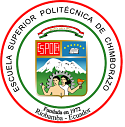PID control of auto-regulated and integrated processes tuned using the lambda method
DOI:
https://doi.org/10.47187/perspectivas.vol3iss1.pp43-49.2021Keywords:
IMC, Lambda, Optimized PID, Control and Optimization, Tunning MethodAbstract
This work presents the implementation of a didactic tool to determine the value of the constants of a PID controller through the lambda method, also known as IMC (Internal Control Method). Such a tool can be used to start a process or ratify the current values of the constants of the controller since the wear out of the process’s elements affects its dynamics, being necessary to update them frequently. In order to validate the tool, tests were carried out on an integral process and a self-regulating one. The comparison of constant values applying conventional control strategies such as PID and lambda method, as well as the response of the process to similar changes, as set point or disturbances is presented. The obtained results determining that through the lambda tuning the control is fast and stable.
Métricas
References
P. Sharma y R. Gupta, «Tuning of PID Controller for a Linear BLDC Motor Using TLBO Technique», en 2014 International Conference on Computational Intelligence and Communication Networks, Bhopal, India, 2014, pp. 1224-1228.
D. E. Rivera Flores, «Una metodología para la identificación integrada con el diseño de controladores imc-pid», Revista Iberoamericana de Automática e Informática Industrial RIAI, vol. 4, n.o 4, pp. 5-18, oct. 2007.
W. Lima Torres, I. Bezerra Queiroz Araujo, J. Bezerra Menezes Filho, y A. Goncalves Costa Junior, «Mathematical Modeling and PID Controller Parameter Tuning in a Didactic Thermal Plant», IEEE Latin America Transactions, vol. 15, n.o 7, pp. 1250-1256, 2017.
M. Pradeep, B. Sharmila, D. Devasena, y K. Srinivasan, «PID and PIλDμ Controller Implementation for Speed Control Analysis of Two Mass Drive System», p. 4.
S. Ramasamy, H. V. Pradhan, P. Ramanathan, P. Arulmozhivarman, y R. Tatavarti, «A novel and pedagogical approach to teach PID controller with LabVIEW signal express», en 2012 IEEE International Conference on Engineering Education: Innovative Practices and Future Trends (AICERA), Kottayam, India, 2012, pp. 1-8.
E. Pruna, E. R. Sasig, y S. Mullo, «PI and PID controller tuning tool based on the lambda method», en 2017 CHILEAN Conference on Electrical, Electronics Engineering, Information and Communication Technologies (CHILECON), Pucon, 2017, pp. 1-6.
F. Castrillón Hernández y D. Castellanos-Cárdenas, «New tuning rules for PID controllers based on IMC with minimum IAE for inverse response processes», DYNA, vol. 82, n.o 194, pp. 111-118, dic. 2015.
L. W. Tan, R. K. Raja Ahmad, M. N. Ibrahim, y F. S. Taip, «Relationship of lambda and overshoot of step response for a direct synthesis PI controller», Brazilian Journal of Chemical Engineering, vol. 29, n.o 3, pp. 537-548, sep. 2012.
V. H. Andaluz et al., «Multi-user Industrial Training and Education Environment», en Augmented Reality, Virtual Reality, and Computer Graphics, vol. 10851, L. T. De Paolis y P. Bourdot, Eds. Cham: Springer International Publishing, 2018, pp. 533-546.
R.-E. Precup, S. Preitl, M.-B. Radac, E. M. Petriu, C.-A. Dragos, y J. K. Tar, «Experiment-Based Teaching in Advanced Control Engineering», IEEE Transactions on Education, vol. 54, n.o 3, pp. 345-355, ago. 2011.
E. P. Management, «Lambda Tuning as a Promising Controller Tuning Method for the Refinery», p. 10.
J. Sanchez, H. Vargas, y S. Dormido, «Web-based learning resources for vocational training on control and measurement systems: The AutoTECH project», en 2007 European Control Conference (ECC), Kos, 2007, pp. 1831-1838.
E. Pruna, F. Bayas, H. Cocha, I. Escobar, A. Gordon, y P. Constante, «Implementation of a simulator of industrial processes», en 2016 IEEE International Conference on Automatica (ICA-ACCA), Curicó, Chile, 2016, pp. 1-6.
A. L. S. Nair, S. A. J. Mary, y J. A. Linsely, «Modeling and control of level control process — A comparative study», en 2017 Innovations in Power and Advanced Computing Technologies (i-PACT), Vellore, 2017, pp. 1-4.
B. Vasu Murthy, Y. V. Pavan Kumar, y U. V. Ratna Kumari, «Application of neural networks in process control: Automatic online tuning of PID controller gains for disturbance rejection», en 2012 IEEE International Conference on Advanced Communication Control and Computing Technologies (ICACCCT), Ramanathapuram, India, 2012, pp. 348-352.
N. Hambali, H. F. Halim, y J. Johari, «Implementing Problem-Based Learning in Process Control Laboratory for Final Year Electrical Engineering undergraduates: Flow control plant», en 2015 IEEE 7th International Conference on Engineering Education (ICEED), Kanazawa, Japan, 2015, pp. 85-89.
E. Bullinger y F. Allgower, «Adaptive X-tracking for Nonlinear Systems with Higher Relative Degree», p. 6.
Published
How to Cite
Issue
Section
License
Copyright (c) 2021 Fabián Guagchinga, Paola Calvopiña, Silvia Alpúsig, Mildred Cajas

This work is licensed under a Creative Commons Attribution 4.0 International License.
Copyright
The authors of the manuscripts will retain their copyright on their articles published in Pespectivas Journal. These rights allow the authors to present their manuscripts in public, prepare derivative works, reproduce them physically by printing and distribute them on their social or research networks. These rights will remain unchanged as long as the authors respect the publication and free access policy of Perspectivas Journal.
Publication Rights
Perspectivas Journal reserves all first publication rights on each of the articles that the authors have sent to its review and publication process. It implies that authors will only exercise their copyright if they state the source and origin of the publication correctly, mainly when they distribute, share, present, or use their articles' total or partial content.














